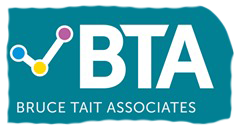31 July 2013 / BTA
Home
/ News & Views
/ Common pitfalls in fundraising... and how to dodge them!
This week we’re pleased to welcome a guest blog post from Lyndsey Tigar from Fundraising Friend in Edinburgh.
I would argue that there is an art to effective grant fundraising. And unless you have mastered that art (or at least come close), your chances of success will probably remain slim. The result? Seven years of wasted effort producing ineligible applications, according to a recent study by the Directory of Social Change.
Having worked with the UK's biggest grant giver, and now running my own small business securing grants for charities, I have come to realise that there are certain 'dos' and 'don'ts' when it comes to writing a winning grant application. It is true that many variables come into play, however, some common points still prevail.
Lesson #1 - Always read the guidance
"If only they had read our eligibility criteria, they would clearly see we don’t fund that" - a perennial complaint from funders according to Third Sector.
According to the latest figures from the Big Lottery Fund, 46 per cent of applications to one of its main funding programmes between May and July this year were ineligible. It's easy to forget that trusts, foundations and other grant making organisations have their own goals and priorities to meet. If you are seeking external financial support, I would argue that it is essential that you begin by identifying a strong match between your organisation/project, and the organisation you are approaching for support. This requires an investment of time to carry out the appropriate research upfront. Also, remember that details such as level of turnover and the location in which you operate, may make your application redundant before you even begin. So read the guidance!
Lesson #2 - Be clear, avoid jargon and avoid buzzwords
Once you have identified the right opportunity, you will inevitably be faced with a series of questions to which you need to provide a comprehensive written response to.
My top tips are:
- Be clear from the outset what your project is about and what you are trying to achieve. If you don't know, how is the funder supposed to know?
- Remember that the reader will most likely be brand new to your organisation so you mustn't assume any prior knowledge. But also don't go on endlessly about things that have no direct bearing to your project. It will go in your favour if you are clear and concise.
- Avoid jargon and buzzwords. Don't use language that is unique to your line of work (or if you have to, explain what it means). Phrases that confuse and baffle will also frustrate.
- Ask somebody with good written skills to proof-read your answers before you submit them. Do they understand what your project is all about? Were they excited by it? Your answers should not lead to more questions. It should be clear enough that the reader gets it right away.
- If help is on offer from the funder, take it! Many funders will offer a face to face meeting or workshop to help you prepare for your submission. It is ALWAYS useful to meet the funder in order to ask questions, get feedback and familiarise the funding officer with your work.
Lesson #3 - Make sure the sums add up
Another common reason for applications being rejected is applicants asking for unrealistic sums of money. The grants team manager at Henry Smith Charity explains that people come and ask for £500,000, despite their average grant size being £80,000, according to a Third Sector report. On the other hand, Gilly Green, Head of UK Grants at Comic Relief says that some applicants ask for less money than they need in the mistaken belief that this will increase their chances of success. "It’s an assumption that’s not correct," she says (available at Third Sector).
Funders are also frustrated by simple budgetary errors, for example, not checking that all of the itemised costs have been added up correctly. My advice would be to double and triple check your budget section. Also, ensure that your budget is sufficient to do what you are aiming to do. Ask yourself; can you actually deliver the service for the price you are quoting? Of course, everyone can make mistakes when it comes to preparing and drawing up budgets (and many of the larger funders will seek to help you), however, be aware that major financial flaws in your application will inevitably cast doubt on the quality of your project planning as well as your ability to offer value for money.
Lyndsey Tigar runs Fundraising Friend, based in Edinburgh


